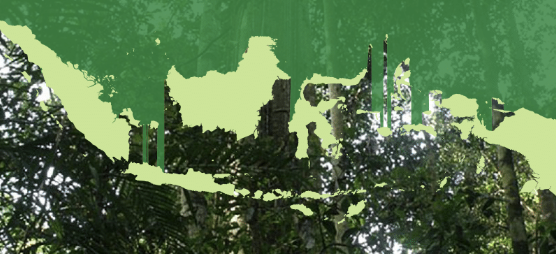November 23, 2012
Location: UN-REDD

During an international forest governance session last month in Republic of the Congo, Indonesia highlighted its work with the UN-REDD Programme in tackling governance challenges through participatory governance assessments for REDD+.
The joint forest governance session on 23 October in Brazzaville, Republic of the Congo was organized by the Forest Carbon Partnership Facility (FCPF), the European Forestry Institute, Profor and the UN-REDD Programme to raise the profile of governance in REDD+ discussions. Mr. Mas Achmad Santosa, Head of the working Group for Legal Review and Law Enforcement in the Indonesian REDD+ Task Force and Deputy of the President’s Delivery Unit (UKP4) gave a presentation on Indonesia’s REDD+ governance challenges while also providing an update of what has been done to date to mitigate some of these risks.
During his intervention, Mr. Santosa announced that Indonesia’s UKP4 Unit and the Ministry of Forestry are now ready to use the Participatory Governance Assessment (PGA) data that the country has prepared for since May 2011, and collected since August of this year.
The UN-REDD Programme currently has four PGA pilots, and Indonesia is by far the most advanced. Through extensive stakeholder contributions and input from stakeholders at the national level as well as eight provincial working groups (in Aceh, Riau, Jambi, South Sumatra, West Kalimantan, Central Kalimantan, East Kalimantan, Central Sulawesi, Papua and West Papua), the PGA process has resulted in stakeholders agreeing on priority governance issues. As such, the PGA is a joint effort to tackle priority governance issues in Indonesia, such as mitigating corruption risks and ensuring Indigenous Peoples’ participation and rights in the REDD+ process.
Mr. Santosa explained to the participants of the joint session that the PGA in Indonesia has now gathered data based on joint decisions on what areas to collect governance data, which indicators to use and which methods to apply for data collection and validation. The data provides: baseline information on the quality of governance and preparedness for REDD+ implementation; a REDD+ governance safeguard road map; and policy recommendations outlining options to strengthen REDD+ governance structures and practices in the provinces. This data has been so well received that the REDD+ Task Force has recently agreed to use the final results of the participatory governance assessment project to inform policy decision making processes on REDD+ governance safeguards.
During an interview with the UN-REDD Programme after the joint session, Mr. Santosa re-emphasized the commitments from the REDD+ Task Force and Ministry of Forestry to include the PGA results in the national REDD+ process in Indonesia, and that the PGA currently is incorporated in the REDD+ Task Force system. Further, he said a key role for the government will be to accelerate this governance process, stressing anti-corruption measures and the participation of stakeholders and freedom of information law.
The sustainability of the PGA is the next step of the Government of Indonesia in this process, and Mr. Santosa recognized the need to further integrate the PGA into government plans and programs. The ownership of all stakeholders in this process was highlighted, particularly that of civil society, which is playing a very significant role in the PGA process. Mr. Santosa also stated that governance safeguards will be an important area of work of the new REDD+ agency in Indonesia once it’s established, recognizing that the PGA results should also be owned and used by the Ministry of Forestry, as well as other relevant ministries. When asked what he learned from the PGA process in Indonesia, Mr. Santosa said he was grateful for this experienced and was reminded through the session that safeguards are a priority for implementing REDD+. He said he was also struck by the importance the participants placed on benefit sharing arrangements.
After this governance session in Brazzaville, Mr. Santosa returned to Jakarta to participate in a national PGA consultation, where stakeholders from the national level and 30 locations throughout the eight PGA provinces gathered to validate the PGA baseline data before a more formal launch in December of this year.
Share this
